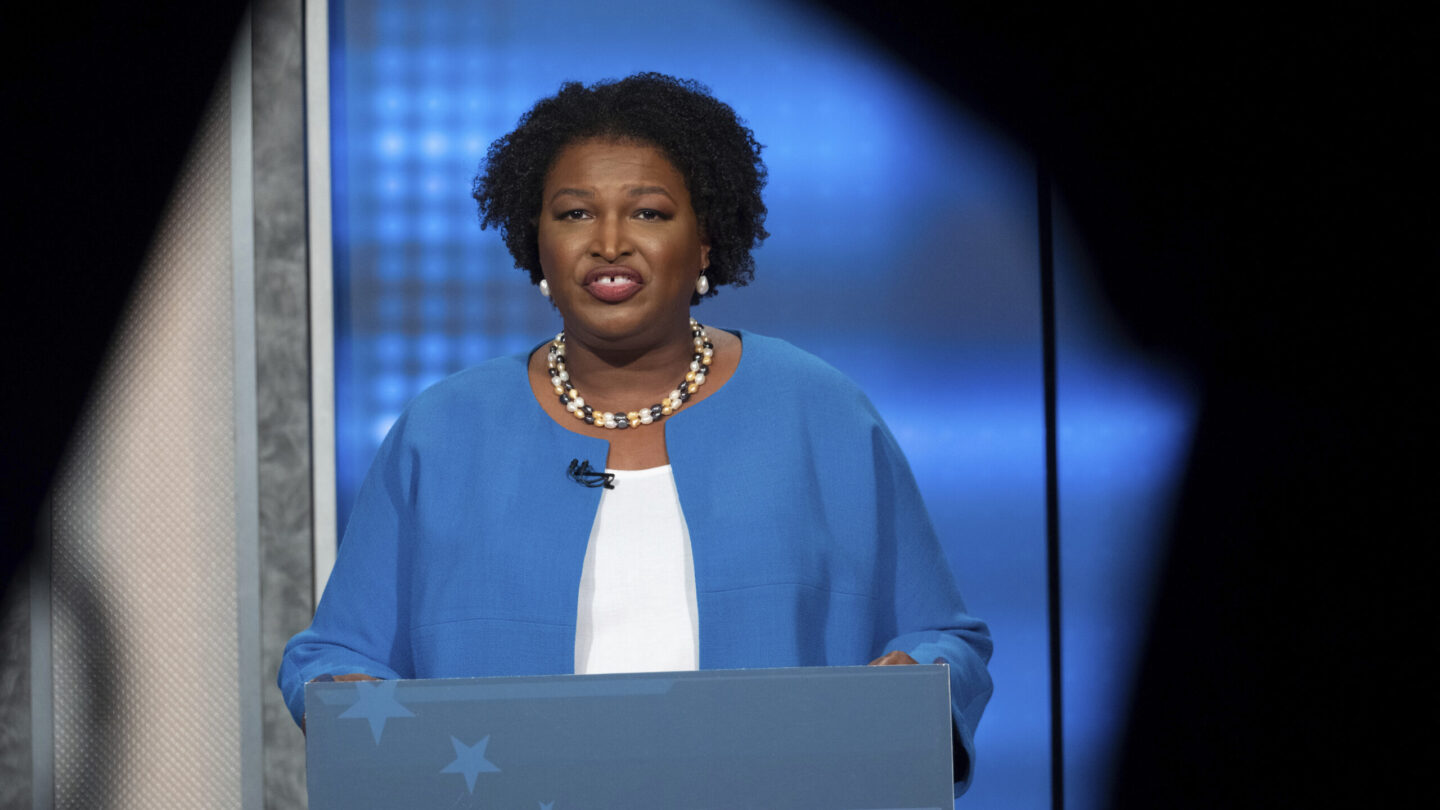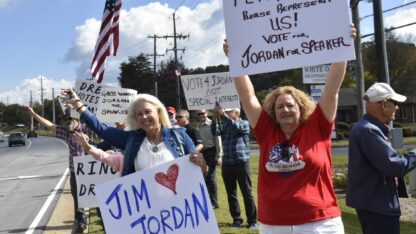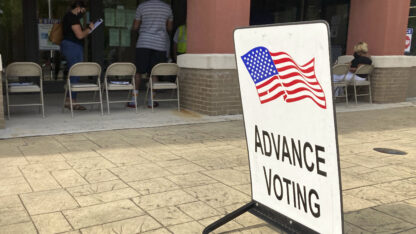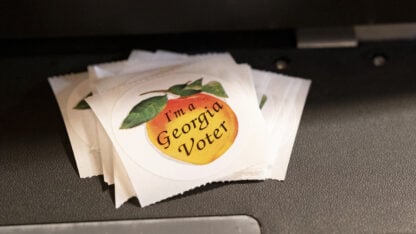In political battleground of Georgia, a trial is set to determine legitimacy of voting challenge

On the eve of a critical 2021 election for U.S. Senate in Georgia, a conservative voting organization announced it was challenging the eligibility of more than 360,000 state voters.
Texas-based True the Vote said it had good reason to believe the voters had moved out of their districts and were ineligible to cast a ballot there. But a group founded by Democrat Stacey Abrams argued in a 2020 lawsuit that the mass challenge violated federal law because it intimidated voters.
Nearly three years later, the two sides are headed to trial in Georgia over those claims. Starting Thursday, U.S. Judge Steve Jones in Gainesville will hear arguments and testimony to determine whether True the Vote’s actions violated a section of the 1965 Voting Rights Act that prohibits voter intimidation.
A ruling against True the Vote could deter similar mass challenges in Georgia and other states, attorneys for plaintiff Fair Fight say. They are specifically asking Jones to bar True the Vote from operating in Georgia and initiating any challenges in the future in the battleground state that President Joe Biden won by roughly 12,000 votes in 2020.
Voter fraud in the U.S. is exceptionally rare. A review by the Associated Press of every potential case of voter fraud in the six battleground states disputed by former President Donald Trump found fewer than 475 cases — an inconsequential number to the 2020 presidential election results. In Georgia, elections officials rejected just a few dozen ballots cast in the 2021 Senate runoff election, the Atlanta Journal-Constitution reported. Both Democrats beat their Republican opponents by tens of thousands of votes, giving the party control of the Senate.
Catherine Engelbrecht, True the Vote co-founder, said in an email to supporters on Monday the case was a “critical battle” and True the Vote was “defending the rights of every American voter.”
The estimated 10-day trial could also feature some prominent witnesses. Attorneys for True the Vote said in a court filing they plan to call to the stand Abrams and Georgia Secretary of State Brad Raffensperger, who was targeted by Trump for not taking steps to overturn his narrow election loss in the state. Fair Fight plans to call Engelbrecht. The judge is not expected to rule immediately after the trial concludes.
True the Vote announced the voter challenges just after early in-person voting began for the January 5, 2021, runoff election for Georgia’s two U.S. Senate seats. At the time, Trump and his allies were spreading false claims that voter fraud had cost Trump the presidential election.
“While local officials feared for their lives and false cries of a stolen presidential election whipped across Georgia like a wildfire, Defendants kept lighting matches,” Fair Fight said in a May court filing.
True the Vote had aligned itself with Trump’s reelection campaign and its multistate legal effort to overturn the general election results. Engelbrecht said while announcing the voter challenges that True the Vote was helping Georgia voters “in taking a stand for the sanctity of every legal vote.”
To further deter voting in the Senate runoffs, Engelbrecht publicized a million-dollar bounty for reports of election-related wrongdoing and said she would send Navy SEALs to polling places, Fair Fight said in the May 25 court filing.
Attorneys for True the Vote accuse Fair Fight in court documents of an “overly dramatic narrative,” saying the challenges were allowed by Georgia law and that the money True the Vote announced was a legal fund for whistleblowers. The mention of Navy SEALs reflected Engelbrecht’s “musings on volunteer help at polls from readily recognizable veterans of honor familiar with detail and the chain of command” and did not materialize, according to court documents.
“Plaintiffs push a narrative where the big bad state yanks people out of line at polling stations as trained killers patrol nearby or humiliates them by asking for added proof of county residency already required of every voter,” attorneys Jake Evans and Michael Wynne say in a trial brief filed Monday.
They also argue that the defendants were engaging in protected free speech. The U.S. Department of Justice has joined the case and says applying the section of the 1965 Voting Rights Act that prohibits voter intimidation in this instance does not violate the First Amendment.








